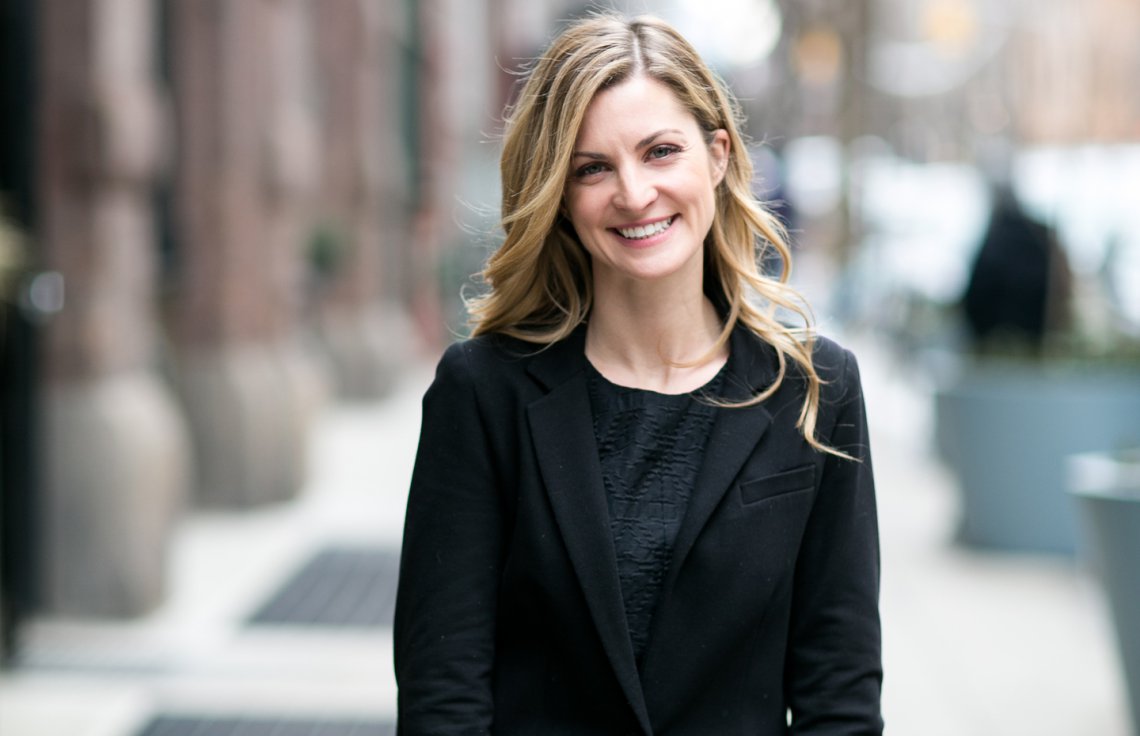Every day, we witness women make major breakthroughs in their careers, jumping into (and owning) fields traditionally dominated by men. Technology is certainly one of those sectors, and it’s home base for a new batch of women leaders and entrepreneurs. Household names like Bill Gates and Mark Zuckerberg now share space with Marissa Mayer and Sheryl Sandberg, industry leaders who are forcing us all to reconsider what a woman in technology “looks like.”
Today’s Contessa, Elise Runde Voss, takes that notion one step further: she's challenging the traditional ways companies source and find talent, along with stereotypes of what makes a “good candidate.” Her technology start-up, UpScored, goes deeper than any job search app you’ve seen before, matching your real experiences and background with equally real job listings. By honing in on positions that actual suit you, UpScored helps you pursue a stronger career trajectory with less downtime betwen gigs. Because if there’s anything Elise understands, it’s that smart, driven women (and men) don’t have time to wade through useless listings. We’ve got the Craigslist furniture section for that.
Elise is many things. She's a ladypreneur, a technology guru, a marathon runner (hint: her best ideas often come outside of business hours during, say, an epic run through Central Park), but mostly, she’s got a unique and healthy perspective about what it means to chart her own course. In a seemingly infinite sea of new technology companies, her no-nonsense approach means she’s building a name for herself and for UpScored—and she intends to keep the positive feedback coming. Citing Warren Buffet, she reminds us: “It takes 20 years to build a reputation and five minutes to ruin it. If you think about that, you’ll do things differently.”
This Contessa’s got both the gift of foresight and the uncanny ability to reach forward-thinking goals—and she's built a platform to help us get there, too. Read on to discover what gets her up in the morning and where she sees technology taking us in the all-too-near future.
EDITOR'S NOTE: Elise is now a Career Contessa Mentor! Click here to book personalized career advice with her.
Her Starting Point
First off: what was it like growing up in Cedar Rapids, Iowa? Do you feel like your hometown shaped your outlook at all?
I grew up in a family of very hard workers. My parents are both successful small business owners in Iowa. My father owns a residential construction company and my mother is an interior designer. Growing up, I watched how meticulously they ran their businesses.
When I was really young, my grandfather also owned a small television company. I learned a lot of valuable life lessons from him. One lesson that made a big impression was the importance of quality customer service. He treated everyone with the utmost importance, and his dedication to his customers was genuine.
In college, you studied finance and marketing. How do you think the two fit together? As you transitioned from college to career, what did you think you’d be doing with those degrees?
I chose my majors pretty early, during my freshman year. At the time, I didn’t know exactly what I wanted to do when I graduated, but I decided that degrees in finance and marketing would complement each other. My finance classes taught me business fundamentals, while marketing helped me better understand consumer behavior. Majoring in both allowed me to tap into my creative side and learn the quantitative aspects of business.
After graduating, I started my career in finance at an investment bank. I always had the intention of founding my own company someday, but I wanted it to happen organically—with the right team and the right idea.
Was there a particular moment when you realized it was essential to make the hiring process simpler? What led you to deciding to strike out on your own?
The idea for UpScored was born from our founding team’s personal experience. Prior to UpScored, my two co-founders and I worked together at a hedge fund called SAC Capital (now Point72 Asset Management). While we were at the firm, we built the company’s first Big Data Strategy Group.
During our time growing the division, we experienced firsthand the challenging process of hiring a team—and how candidate choices can significantly impact growth and culture. It’s a hassle for candidates, too. You spend hours filtering through career sites and applying to jobs. Oftentimes, it’s hard to know whether you qualify or not.
My team and I had an “aha moment” at our old firm. We came to two realizations:
1) the hiring process is extremely frustrating and cluttered for both candidates and companies and
2) the way to eliminate the noise is by using data science.
We built UpScored with the mission of using better technology to make the job search personalized and effective.
Did you have any mentors along the way? How did they help you grow?
Mentors are crucial to professional development. I’ve found a few along my career path that have been incremental in guiding me at different points, especially with tough decisions.
Variety is important; it's helpful to have different types of mentors for different aspects of life. And I should say: a mentor doesn't always need to be someone senior. A good friend of mine founded a fashion-tech company a couple years ago. She’s my age and has the same “job title” as me, but she’s extremely sharp and a fantastic mentor.

Her Big Break
What was the most difficult thing about getting UpScored off the ground? What’s an average day like for you?
One challenge that we faced before we had the technology developed was articulating how data science could impact career search and placement. Explaining an idea that revolves around data science, which is a nascent industry, can be tricky. Now that the platform is live, it’s much easier to show the impact to both job seekers and companies.
Each day is completely different. One day, I might be testing new product updates, talking with an UpScored member about their experience with the platform, or meeting with a recruiting leader at a Fortune 500 company or startup. On another day, I might be brainstorming new ideas for product features or how to better reach our core demographic. Priorities constantly change!
Speaking of data science: UpScored prides itself on honing job search technology so that women hunting for the right position and company can find their way there quickly, mostly thanks to a series of algorithms. Were you always interested in working with data, algorithms, and coding? What makes UpScored's technology superior to other job boards?
I’ve actually spent the majority of my career in fundamental research and investing, rather than working with algorithms and big data. The first time I witnessed the tremendous power of data science and advanced algorithms was in my last role at SAC Capital. At UpScored, my two co-founders and I are leveraging our previous experience with data to build a business that is very different from other career sites.
Other job boards and career matching sites use simple keywords and basic filtering to match candidates to jobs, which is why there’s so much noise in the system. Our algorithms dig much deeper into your individual skills, work experience, and education to curate personalized. UpScored is the first and only platform that matches candidates with opportunities suited specifically to them and automatically learns what they like and don't like.
What’s the biggest flaw in how we currently assess talent?
According to a study conducted by The Ladders, recruiters spend 6 seconds on average reviewing a resume. That’s not nearly enough time to properly assess if someone has the ability to do the job. Too often companies rely on high level filters, i.e. the person must come from a top school or have a certain SAT or ACT score. High-level filters lead to biases and sameness rather than a diverse talent pool. They lead to a lot of qualified candidates either being mismatched or completely missed altogether.
We all know that running your own company often means sacrificing personal time. How do you strike a balance?
Achieving a healthy work-life balance is certainly an ongoing challenge. Spending time with close friends and family is indispensable. And finding time to exercise is another must-do! The best trick I’ve found is to make a conscientious effort to block out time in my calendar for both each week, whether it be dinner with a friend, a SoulCycle class, or even a quick run.
My go-to escape is running, actually, typically in Central Park. I ran the NYC Marathon this past November. It was an extraordinary experience and made me more diligent about running regularly. I’ve actually come up with my best ideas on long runs. Even a short 3-miler can be cathartic and help clear my mind.
And I haven’t mastered the art of meditation, but I’ve been pleasantly surprised with the app Headspace. It’s a simple solution to being more mindful and only takes 10 minutes a day.
What has been your biggest career accomplishment so far? Were there any setbacks associated with your achievements?
Leaving behind a job with visibility, a paycheck, and a clear trajectory was a major life change, but finding a problem that needs to be fixed and building something from scratch has been far more rewarding than anything I’ve done in previous roles. On the flip side, one of the toughest parts about starting a company is there are a lot of daily setbacks and minor failures—a digital advertisement doesn’t perform well or an important meeting falls through.
We don’t spend time regretting decisions. Instead, we learn and grow from the setbacks. Plus, setbacks make the accomplishments much more rewarding. I’m proud of what we’ve built so far at UpScored and am so excited to see where we take it.

Her Perspective
You’ve done a lot of volunteer work over the years. Besides improving the career search, what are you most passionate about? How do you think your passions affect your company and career?
Over the past 5 years, I’ve been fortunate enough to work with St. Jude Children’s Research Hospital, an organization focused on advancing cures for pediatric cancer and other catastrophic diseases through research and treatment. Amazingly, St. Jude has raised the childhood cancer survival rate to 80% from 20% over the last several years. It’s a phenomenal cause that I’m very passionate about.
I’m currently the Event Chair for The Gold Gala, an annual event where New York’s leading young philanthropists come together to support St. Jude. A significant amount of time and planning goes into the event throughout the year. It doesn’t feel like effort, though. I view my career that way, too. As long as I’m working on something I’m passionate about, it doesn’t feel like “work.”
In your own words, what is the main difference between, “What do you want to be when you grow up?” and “What do you want to do when you grow up?”?
“What do you want to be when you grow up?” is very different from “What do you want to do when you grow up?” What you want to “be” relates to who you are as a person. Do you want to be reliable, optimistic, loyal, honest? What are your core values? It is the more paramount of the two questions. I interpret the latter question as what you want to “do” in your career, which evolves over time.
What’s your best advice to young women who are just starting their career search? How can they get a leg up?
Most career advice tells us to envision where we want to be in 5-10 years. I don’t agree with this approach—it assumes the world is static. You should absolutely have long-term ambitions, but be ready to adapt. Worry less about compensation and a 10-year plan and focus more on challenging yourself, being open to opportunities, and learning everything you possibly can in your first job.
And finally, what do you wake up every day looking forward to? What’s next for your career?
I wake up every day excited to be working on such a meaningful issue with two remarkably talented co-founders. Fixing the way we find and get jobs is something the three of us are very passionate about. Solving the inefficiencies in the labor market is a challenging endeavor, but the broader vision and constant flow of new ideas keep me energized.
Next up, our main focus is to encapsulate the feedback we’ve been receiving from our members and iterate from there. We’ll continue building UpScored based on what people want and need to discover their ideal careers so they can lead their best lives.
EDITOR'S NOTE: Elise is now a Career Contessa Mentor! Click here to book personalized career advice with her.
You May Also Like
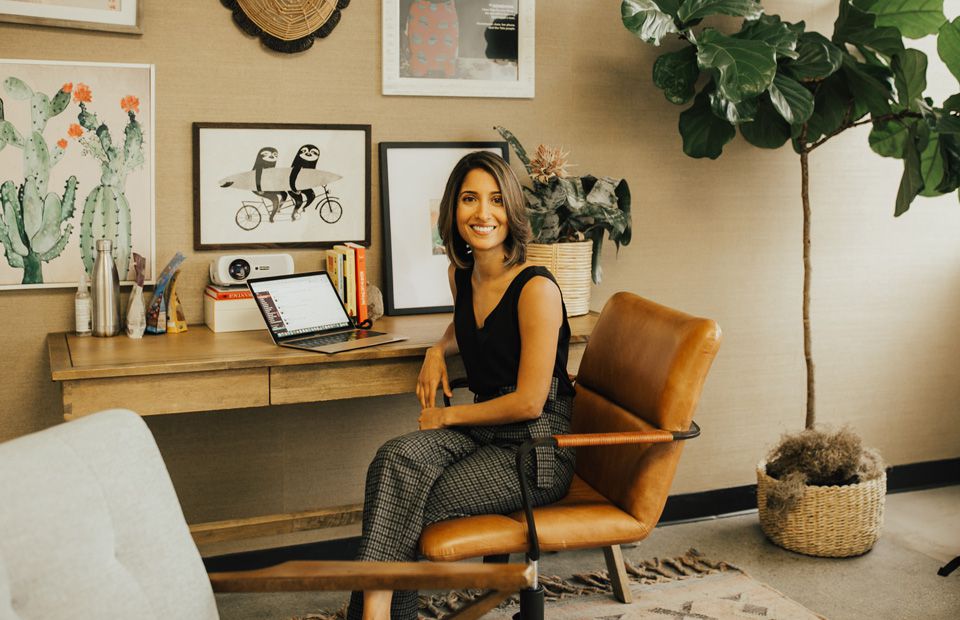
Technology
A Tech Founder on Why Being an Outsider Is a Strength
"I actually think most successful founders are rebels, of a sort. We’re trying to do new things and take on entrenched systems or ways of thinking. What makes me and our company different is that we’re outsiders."

Technology
Omoju Miller—Tech Veteran, Leader, and Volunteer Advisor to the Obama Administration—on The Crucial Role of Creativity in the Tech Industry
"If you are in an environment where you feel marginalized, leave. Don’t try to change it. Go and look for a place that sees you and lets you be you."
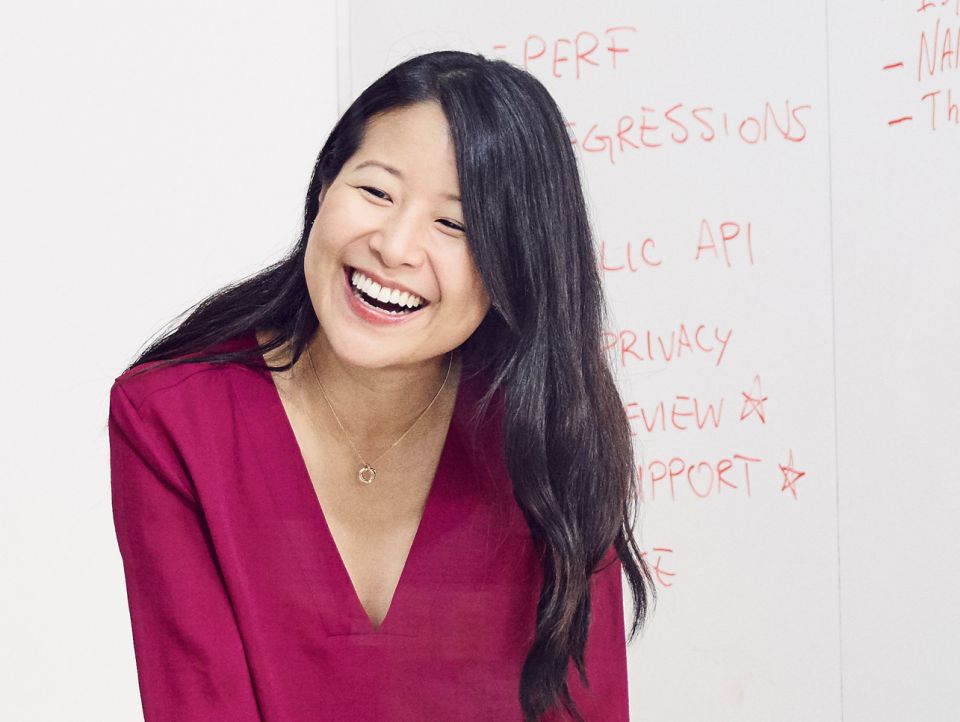
Technology
Sharing Stories as a Software Engineer
We sat down with Apple software engineer Emilie to learn about her day-to-day working at Apple along with what it takes to run the perfect meeting and her favorite ways to unwind.
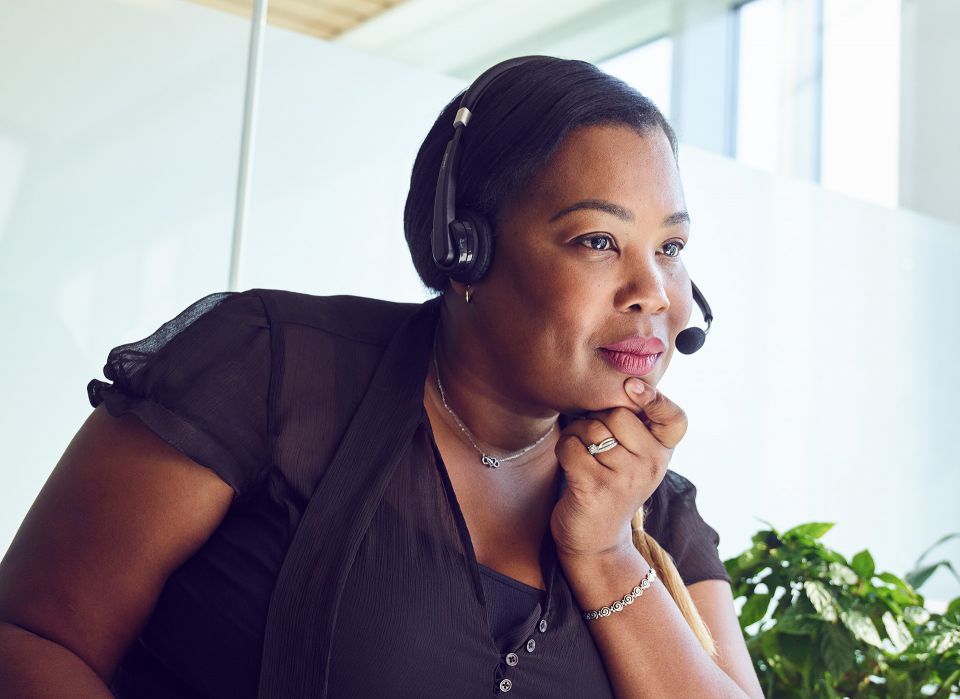
Technology
Creating Impact with Apple
We sat down with Apple's Senior Developer Partner Relations Advisor, Cris, to learn about what it takes to create a lasting impact within a large company. She shares a typical day in the life, her favorite book recommendations, and her top four tips to running a meeting.
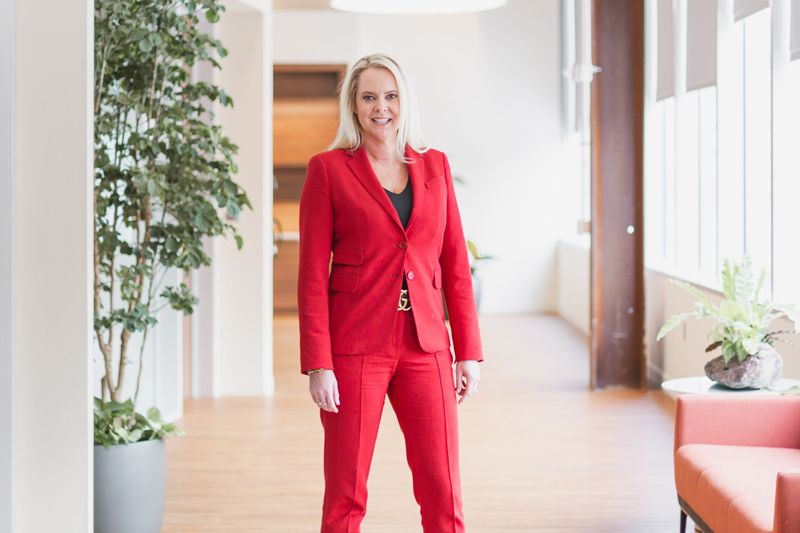
Technology
Salesforce’s Senior Vice President of Sales on Unconscious Bias, Failure, and Innovative Leadership
"Do not be afraid to fail, just bring your best self to the table."
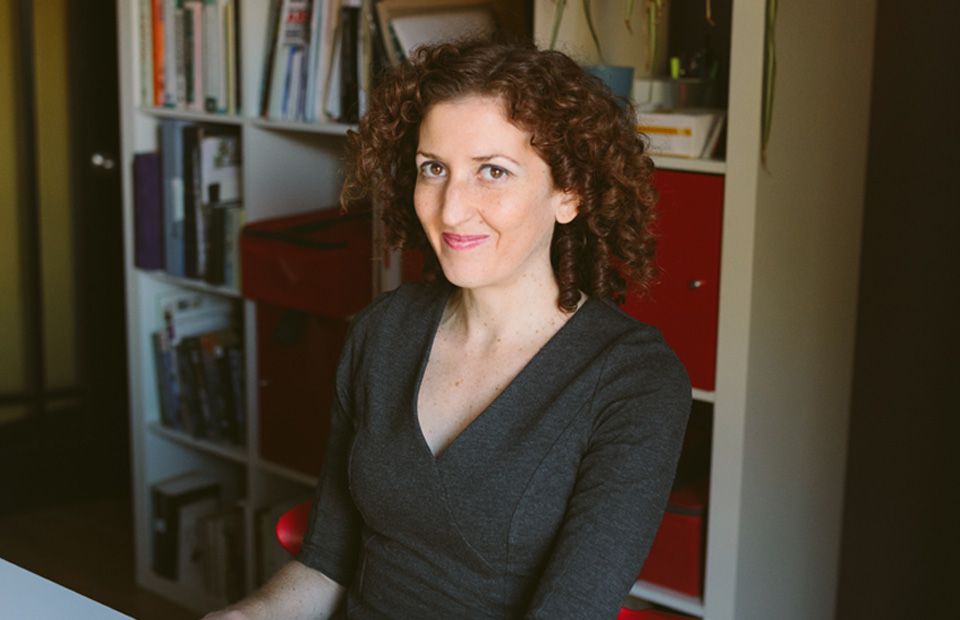
Technology
A Director of Engineering on Tech + Leadership
"I don’t believe in 'having it all'. If you spend more time on one thing, then you spend less time on another thing. All we can do is make choices on how to spend our time."
Get the Best Career Advice Delivered To Your Inbox
Join our newsletter to stay in the loop.
